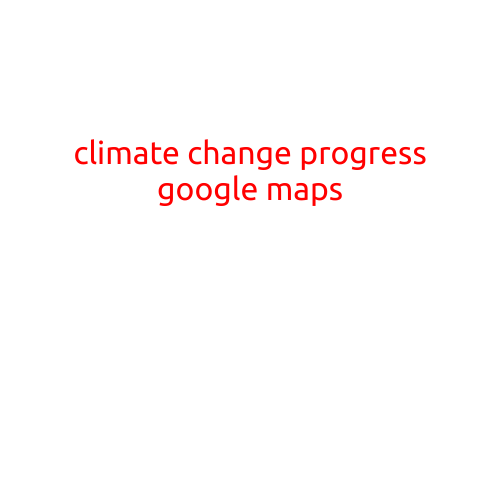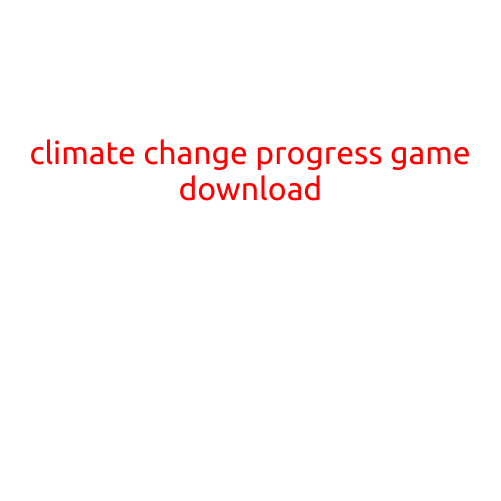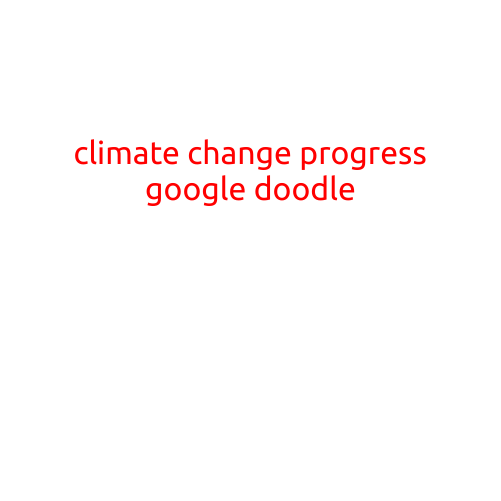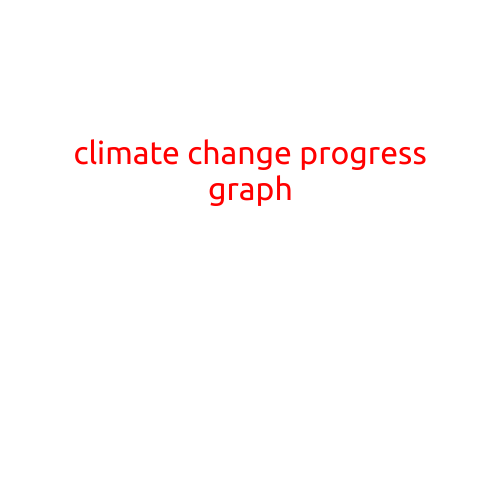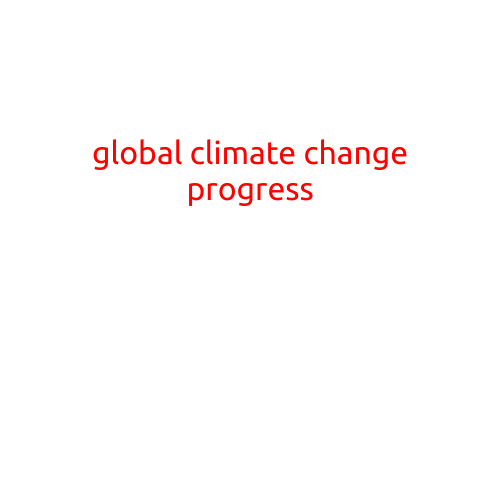
Global Climate Change Progress: A Look at the Latest Developments and Efforts to Combat Rising Temperatures
The impacts of global climate change are no longer debatable. Over the past few decades, the scientific community has consistently sounded the alarm on the urgent need to take action to mitigate the effects of rising greenhouse gas emissions and their resulting global temperature increases. While progress has been made, there is still much work to be done to address the scale and scope of this pressing issue.
Recent Developments and Milestones
In recent years, a significant number of developments and milestones have contributed to a sense of progress in the global effort to combat climate change. Some notable examples include:
- Paris Agreement: In 2015, the Paris Agreement was signed by nearly 200 countries, committing to limit global warming to well below 2°C above pre-industrial levels and pursue efforts to limit it to 1.5°C. The agreement represents a significant step forward in global cooperation on climate change.
- Renewable Energy Growth: The cost of renewable energy technologies, such as solar and wind power, has dropped dramatically in recent years, making them increasingly competitive with fossil fuels. In 2020, renewable energy accounted for over 30% of global electricity generation, up from 22% in 2015.
- Electrification of Transportation: The shift towards electric vehicles (EVs) is gaining momentum, with many countries setting targets for EV adoption. In 2020, the number of EVs on the road reached over 3 million, with estimates suggesting that by 2030, over 50% of new car sales will be electric.
- Carbon Pricing: Carbon pricing mechanisms have been implemented or proposed in numerous countries, providing a financial incentive for companies and individuals to reduce their carbon emissions. In 2020, the European Union’s Emissions Trading System (ETS) raised €6.4 billion in revenue from carbon auctions.
- Climate-Smart Agriculture: The agricultural sector has made significant progress in adopting climate-resilient practices, such as precision agriculture and crop diversification. These approaches have the potential to reduce emissions and enhance food security.
Challenges and Opportunities
While progress has been made, there remain significant challenges and opportunities to be addressed:
- Meeting Ambitions: The Paris Agreement’s goals are still out of reach, with the current trajectory projected to result in 3°C of warming by the end of the century. To stay on track, countries must increase their ambition and implementation of climate policies.
- Energy Transition: The transition to a low-carbon economy will require significant investment in renewable energy, energy storage, and grid infrastructure. This poses both challenges and opportunities for companies and countries.
- Climate Justice: Climate change affects vulnerable populations disproportionately, emphasizing the need for climate justice and international cooperation to support these communities.
- Biodiversity and Ecosystems: Climate change is having devastating impacts on biodiversity and ecosystems. Conservation efforts and sustainable land-use practices are critical to preserving natural capital.
Path Forward
To accelerate progress, the following actions are vital:
- Increased Ambition: Countries must set more ambitious targets for emissions reduction and implement policies to achieve them.
- Sustainable Innovations: Research and development of new, low-carbon technologies and processes will be crucial for driving the energy transition.
- International Cooperation: Global cooperation will be essential for sharing knowledge, best practices, and financial resources to address the global nature of climate change.
- Climate Education and Awareness: Education and awareness-raising efforts will be critical for engaging public support and encouraging individual actions to combat climate change.
In conclusion, while significant progress has been made in addressing global climate change, there is still much work to be done to limit the effects of rising temperatures. By building on recent developments and milestones, and addressing the challenges and opportunities ahead, we can work towards a more sustainable, climate-resilient future for all.
